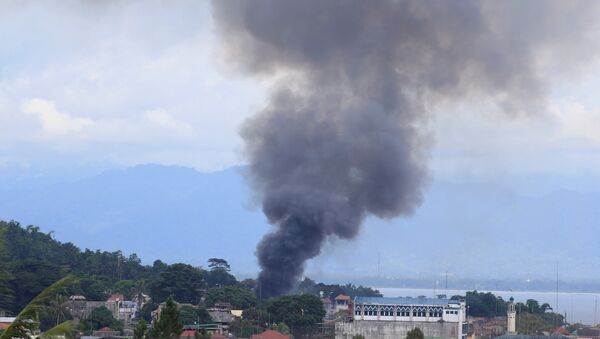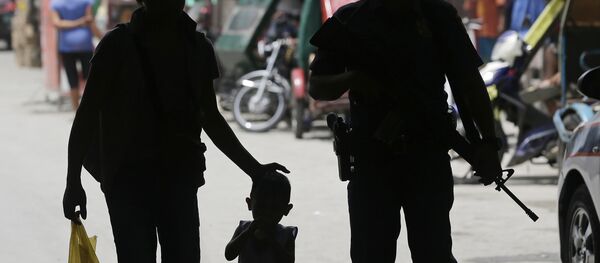Around 62% of the world's Muslims live in the Asia-Pacific region, which stretches from Turkey to Indonesia; they number 1 billion people.
The Southeast Asia region in particular is home to about three hundred million Muslims.
The Indonesian defense minister, Ryamizard Ryacudu, is set to meet with his counterparts from Malaysia, the Philippines, Brunei and Singapore to discuss the rising threat.
Natalia Rogozhina, a PhD in Political Science who is the leading research associate at the Institute of World Economy and International Relations of the Russian Academy of Sciences, spoke to Sputnik Vietnam in an interview about this development.
“Back in 2014 a joint declaration was adopted condemning Daesh and combat action began. Last year at a conference in Bali, the countries agreed on the exchange of intelligence and fingerprints of the terrorists, primarily to track the crossing of militants through the fairly transparent borders in the region and to cut off money transfer channels,” Rogozhina said.
The analyst further said that last year, the Indonesian intelligence services managed to prevent missile attacks on Singapore, which Daesh had planned to launch from Indonesian territory.
“The governments of Thailand and Malaysia agreed on the joint construction of a wall on the border between the countries, primarily to deprive terrorists in Malaysia, where extremely severe laws are in force against them, of the ability to move to Thailand in the event of danger,” Rogozhina said.
The events that began at the end of last month in the Filipino city of Marawi, which was seized by Islamist armed groups, showed that the threat is transnational.
In Marawi, there were militants from Malaysia and Singapore fighting in the same ranks with the local terrorists. There were more than forty terrorists from Indonesia as well.
The events in Marawi also showed that in a number of ASEAN countries’ militants had responded to the call of Daesh, which implored that those who cannot fight in the Middle East must fight for the establishment of an Islamic caliphate in Southeast Asia.
Dozens of terrorist groups in Southeast Asia have sworn allegiance to Daesh. In the Indonesian capital, militants linked to Daesh have already carried out a series of attacks and there is information that they are running a training camp on an Indonesian island.
In the southern part of the Philippines, the National Liberation Front of Moro, the Islamic Liberation Front of Moro and the group Abu Sayyaf are most active today.
The Abu Sayyaf militants attack not only military targets but civilians living in the southern provinces.
Their methods of terror include kidnapping, murder, violence and extortion. Their ultimate goal is the formation of an Islamic fundamentalist super-state.
A somewhat different situation is seen in Thailand. According to the official statements of the authorities, there is an anti-government nationalist movement growing in the southern provinces of Thailand.
So far the local separatists lack any connection with the supporters of Daesh. In the Middle East, among the Daesh terrorists there was not a single person from Thailand.
However, the danger that Thai separatists could eventually coordinate with Daesh to achieve their own goals is very likely.
The situation in Indochina (Laos, Cambodia and Vietnam) is completely different from the rest of the region. These countries lack a significant Muslim population and the Islamic faith is unpopular in these countries.
According to Rogozhina, it’s important to fully coordination the struggle to oppose Daesh by unifying the efforts of the countries of the region.




